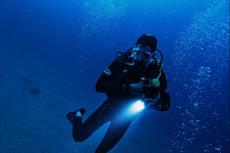Soft corals are source of sought after “anti-cancer” compound
Scientists have discovered that soft corals are the producers of a natural chemical with potential anti-cancer properties, after 25 years of search by drug hunters.
Researchers at the University of Utah Health led by Eric Schmidt, along with collaborators, successfully identified the DNA responsible for synthesizing the compound, eleutherobin, marking a significant step towards producing it in the laboratory for further testing and potential use in cancer treatment.
Meanwhile, a second group of researchers led by Bradley Moore of Scripps Institution of Oceanography at the University of California, San Diego, showed in a separate study that corals make related molecules.
Ingestible
The breakthrough, published in Nature Chemical Biology, offers a ray of hope in the quest for new cancer therapies. Soft corals, abundant in drug-like compounds, hold promise not only as anti-cancer agents but also as sources of anti-inflammatory and antibiotic substances. Unlike venomous chemicals found in other creatures, soft coral compounds are ingestible, making them easier to develop into oral medications.
Diving and discovery
The journey to this discovery was marked by perseverance and scientific ingenuity. Paul Scesa, the lead author of the study, stumbled upon the sought-after compound in a common species of soft coral near Florida, contradicting the belief that it was synthesized by symbiotic organisms within the corals. With a background in organic chemistry and a passion for marine exploration, Scesa was well-equipped to tackle this challenge.
Eleutherobin
Soft corals use eleutherobin, a diterpene glycoside, as a defense against predators. It disrupts the cytoskeleton, a key scaffold in cells, and hence is a potent inhibitor of cancer cell growth. “Diterpenes are major defensive small molecules that enable soft corals to survive without a tough exterior skeleton, and, until now, their biosynthetic origin has remained intractable,” the researchers wrote.
Utilizing advancements in DNA technology, the researchers decoded the genetic instructions for producing the compound, paving the way for its laboratory synthesis. By programming bacteria to follow these instructions, they successfully replicated the initial steps of the compound’s synthesis, confirming soft corals as its source.
“My hope is to one day hand these to a doctor,” says Scesa. “I think of it as going from the bottom of the ocean to bench to bedside.”



























